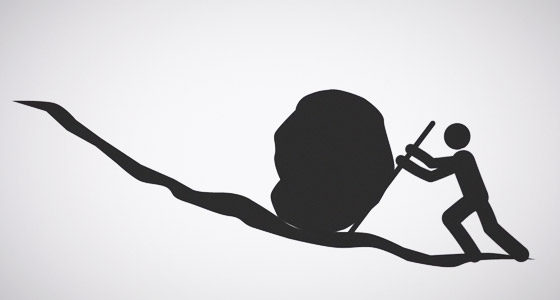Knowing your odds means knowing the odds of winning a prize, understanding The House Edge and coming to grips with the Gambler’s Fallacy.

YOUR ODDS
ODDS OF WINNING A BIG PRIZE OR ANY PRIZE
The odds of winning a prize in a gambling game vary according to many factors, like the number of prizes, the type of game, the size of the prize and so on. The laws of probability are such that in most games you’ll always have to bet more over time to win a major prize than the actual prize is worth. You might win small prizes like a $5 scratchie win, but how much have you already paid for the win? (And do you keep the prize or buy another ticket?)
A good example is a poker machine:
Poker machines vary in the odds they offer of winning a big prize. In Tasmania the odds of winning a prize can be up to but not more than 7 million to one.
For example on a poker machine with 5 reels, where two reels have 50 stop combinations each, two reels have 15 stop combinations each, and one reel has 10 stop combinations, the odds of winning a big prize are 50x50x15x15x10=5,625,000.
Imagine that many grains of sand on a beach. The chance of you winning the jackpot is the same as randomly picking up one ‘winning’ grain of sand from that beach.
You could push the button 7 million times before you win the jackpot. If the jackpot is $5,000 you can see that you’re not likely to get your money back over time, even if you do win the big prize.
Small prizes are paid out more often and are also bound by the laws of probability…
THE GAMBLER’S FALLACY
The Gamblers Fallacy is the belief held by lots of gamblers that an event (like a win on a poker machine) can be “due” to happen. Wrong!
For example, some people think that if one colour in roulette, say red, has won many times in a row then black is ‘due’ to win. This is incorrect. It doesn’t matter how many times in a row red has won, the odds of black winning on the next spin will always be the same.
It’s the same when tossing a coin. Say you toss a coin and heads comes up ten times in a row. What is the chance of the next toss being a tail? The same as it always is: 50%. Some people think in this situation that it’s more likely that tails will come up, that tails are ‘due’. But they are wrong!



